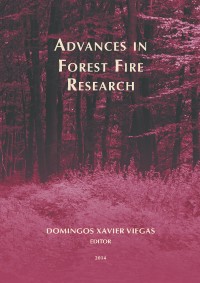Please use this identifier to cite or link to this item:
https://hdl.handle.net/10316.2/34086| DC Field | Value | Language |
|---|---|---|
| dc.contributor.author | Miranda, Ana | |
| dc.contributor.author | Amorim, JH | |
| dc.contributor.author | Valente, J | |
| dc.contributor.author | Monteiro, A | |
| dc.contributor.author | Ferreira, J | |
| dc.contributor.author | Borrego, C | |
| dc.date.accessioned | 2014-10-20T11:40:05Z | |
| dc.date.accessioned | 2020-09-09T21:31:53Z | - |
| dc.date.available | 2014-10-20T11:40:05Z | |
| dc.date.available | 2020-09-09T21:31:53Z | - |
| dc.date.issued | 2014 | - |
| dc.identifier.isbn | 978-989-26-0884-6 (PDF) | |
| dc.identifier.uri | https://hdl.handle.net/10316.2/34086 | - |
| dc.description.abstract | Forest fires are one of the most impressive forces of nature. Large amounts of gases and particles are emitted to the atmosphere, with significant impacts on operational safety, air quality, human health and climate change. In the European context, Portugal, together with other south European countries, has a dark record concerning forest fires, with alarming statistics, concerning occurrences, burnt areas, economic and ecological losses and human casualties. Due to the frequency, magnitude and effects on the environment, health, economy and security, forest fires have increasingly become a major subject of concern for decision-makers, firefighters, scientists and citizens in general. The GEMAC (Group of Emissions, Modelling and Climate Change) research team, at the University of Aveiro in Portugal, completed 20 years of experience in dealing with the effects of forest fires on the atmosphere, working on the monitoring and modelling of the impacts on the environment and human health, together with national and international teams, through the participation in numerous national and international projects. This research team has been involved in several experimental fires performed since 1998 in the GESTOSA experiments, at Serra da Lousã, Central Portugal. GEMAC has collected a large quantity of experimental data, used to support the development of new methods and models, aiming to estimate the effects of forest fires on the atmosphere. The work presented summarizes GEMAC’s most relevant research in what respects the integrated and multi-scale analysis of the interrelations between forest fires and air quality, human safety and health, suppression and climate change. | eng |
| dc.language.iso | eng | - |
| dc.publisher | Imprensa da Universidade de Coimbra | por |
| dc.relation.ispartof | http://hdl.handle.net/10316.2/34013 | por |
| dc.rights | open access | - |
| dc.subject | fire emissions | eng |
| dc.subject | air quality | eng |
| dc.subject | smoke | eng |
| dc.subject | health effects | eng |
| dc.subject | health effects | eng |
| dc.subject | climate change | eng |
| dc.subject | measurement and modelling | eng |
| dc.title | Forest fires effects on the atmosphere: 20 years of research in Portugal | por |
| dc.type | bookPart | por |
| uc.publication.firstPage | 283 | - |
| uc.publication.lastPage | 297 | - |
| uc.publication.location | Coimbra | por |
| dc.identifier.doi | 10.14195/978-989-26-0884-6_30 | - |
| uc.publication.section | Chapter 1 - Fire Behaviour and Modelling | por |
| uc.publication.digCollection | PB | por |
| uc.publication.orderno | 30 | - |
| uc.publication.area | Ciências da Engenharia e Tecnologias | por |
| uc.publication.bookTitle | Advances in forest fire research | - |
| uc.publication.manifest | https://dl.uc.pt/json/iiif/10316.2/34086/211735/manifest?manifest=/json/iiif/10316.2/34086/211735/manifest | - |
| uc.publication.thumbnail | https://dl.uc.pt/retrieve/11176434 | - |
| uc.publication.parentItemId | 53868 | - |
| uc.itemId | 70373 | - |
| item.grantfulltext | open | - |
| item.fulltext | With Fulltext | - |
| Appears in Collections: | Advances in forest fire research | |
Files in This Item:
| File | Description | Size | Format | |
|---|---|---|---|---|
| 978-989-26-0884-6_30.pdf | 1.9 MB | Adobe PDF |  |
Items in DSpace are protected by copyright, with all rights reserved, unless otherwise indicated.
